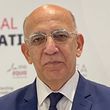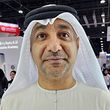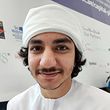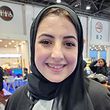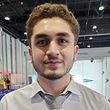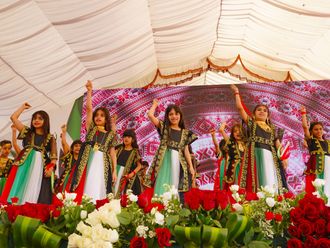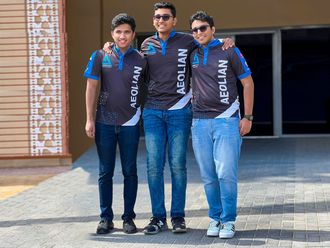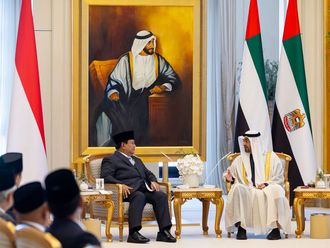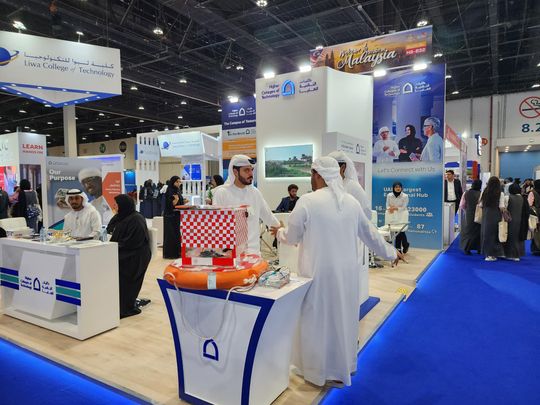
Abu Dhabi: Alongside their academics, students must develop their personal and “future skills” in order to set themselves apart, top educators have advised.
Speaking on the sidelines of Najah Abu Dhabi education fair, they said that achievements and qualifications obtained outside the classroom matter just as much today as in-class achievements.
“Frankly, the idea that you go to university and keep your head down, attend your classes, and get a degree at the end, is simply old-fashioned. In order to thrive at university, and to secure a job afterwards, students need to have leadership skills, resilience, planning skills, and teamworking and networking abilities, and these are often learned just as well outside the classroom,” Dr Waqar Ahmad, chancellor at Abu Dhabi University, told Gulf News.
“Students should actively pursue internships, and look for opportunities to add skills to their resume through additional courses and certifications. This is what sets a graduate apart from others, and it is best to start acquiring these credentials early on,” added Saud Al Ameri, director of admission and registration deanship at UAE University.
Najah Abu Dhabi kicked off in the capital on Saturday, October 16, and was officially inaugurated on Monday by Sheikh Nahyan Bin Mubarak Al Nahyan, Minister of Tolerance and Coexistence, and Ahmed Belhoul Al Falasi, Minister of Education. Running at the Abu Dhabi National Exhibition Centre until Tuesday, October 18, the fair will be followed by a similar three-day event at the Dubai World Trade Centre between October 23 and 25. In total, 100 universities from 20 countries are exhibiting at the two fairs.
‘Future skills’
The focus on future skills and micro-credentials has in fact intensified in the UAE over the past few years, and many universities have accordingly overhauled their learning experiences. The changes are part of a nationwide drive to align university learning to the needs of the job market.
Dr Ahmad Albaroudi, acting admissions manager at Zayed University, said the public institute has introduced a year of general education for all students, and also the requirement that each student engage in interdisciplinary studies.
“Students must learn courses outside their field of specialisation, and this allows graduates to be more flexible in a world where jobs are disappearing and new professions are being introduced every day. In a number of disciplined, students are also required to work and study at the same time. In essence, students can no longer afford to be passive learners, and must take an active role in the skills and qualifications they acquire,” Dr Albaroudi explained.
Dr Albaroudi said the Abu Dhabi University similarly encourages students to pursue internships, and to be a part of decision-making panels at the university.
“We also require every student to spend a year studying these future skills, which we call graduate attributes. Employers have long said that graduates were not equipped with these basic abilities, and we have therefore upskilled our programmes about four years ago,” he explained.
Blended learning
There are also other changes afoot in the UAE’s higher education sector, with more universities making room for blended learning opportunities. These blended or hybrid courses offer a portion of the learning online, thus allowing students work or reskill themselves at the same time.
“The UAE has become an education hub, and as our student numbers at the UAE University grow, it makes sense to offer some high-volume courses online,” Al Ameri said.
Albaroudi added that this also caters to the greater range of students choosing to pursue their higher education in the UAE, including many who work as they pursue a degree.
Why students visit
More than 16,000 people are expected to visit the Najah fairs this year, which are currently in their 16th edition.
“I wanted to see what is on offer as I make a decision about where and what to study. My father would like me to go abroad but I am also impressed by the huge range of degrees on offer in the UAE,” said Fares Al Shekili, 19, an Emirati twelfth-grader who was visiting Najah Abu Dhabi.
Maria Yousuf, 17, a student Jordanian student based in the Al Dhafra region town of Liwa, was also surprised to come across newer specialisations being advertised at the fair.
“I haven’t yet chosen whether I want to pursue medicine or dentistry or fashion, but what really piqued my interest were the newer degrees in medical engineering and operations management,” she said.
Abdul Waseem, a 12th grader from Pakistan, was visiting Najah to get an idea of university requirements.
“I am confident that I want to continue studying in the UAE, and I have set my mind on medicine. So I wanted to know what universities here are looking for from applicants,” he said.
New features
Najah has this year added a number of new activations to engage visitors. The Success Hub explores relevant topics with the aim of empowering prospective students, whereas the Emirates Scholar Research Centre is designed to connect faculty members, graduate students and researchers. A School Counsellors Forum is also seeing experts dissect trends in higher education.


